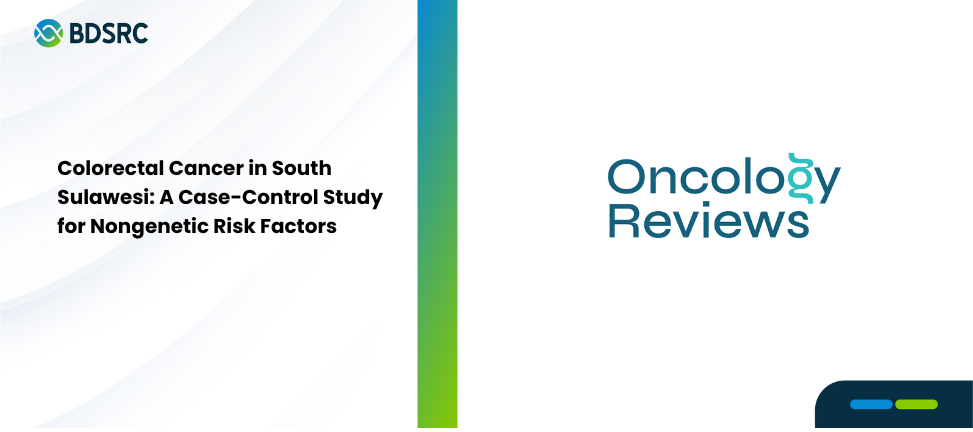Colorectal Cancer in South Sulawesi: A Case-Control Study for Nongenetic Risk Factors

This study analyzed the nongenetic risk factors that contributed to colorectal cancer (CRC) incidence in the South Sulawesi population through a case-control study. The sample consisted of 89 cases and 84 controls, aged between 19–86, with 99 males and 74 females from different ethnic groups. Univariate analysis was carried out using chi-square, Fisher’s exact test, t-test, and Mann-Whitney U test. Significant nongenetic risk factors were selected through the logit model L1 regularization, adjusted for age, gender, and ethnicity. The analyzed risk factors were the patient’s weight, height, body mass index (BMI), defecation location, exercise habit, smoking habit, marital status, occupation, education level, and distance to the nearest health center. The estimated odds ratio from the logit model was used to analyze the significance of the selected risk factors. The significant risk factors from the logit model were smoking habit, education level, marital status, distance to the nearest health center, and weight. CRC cases were more likely to have lower education (OR = 1.819, 95% CI 1.354–2.443), residing in remote areas (OR = 1.44, 95% CI 1.17–1.772), experiencing decreasing weight (OR = 1.03, 95% CI 1.013–1.048). Controls were more likely to be non-smokers (OR = 0.325, 95% CI 0.149–0.707) and unmarried (OR = 0.161, 95% CI 0.036–0.716). The study determined that other nongenetic risk factors, including education level, distance to the nearest health center, weight, smoking habit, and marital status, contributed to the CRC incidence within the South Sulawesi population. The study emphasized the importance in accounting for these risk factors for further, targeted CRC preventions.
Authors:
Upik Anderiani Miskad, Matthew Martianus Henry, Carissa Ikka Pardamean, Arif Budiarto, Akram Irwan, James W. Baurley, Irawan Yusuf, Bens Pardamean
Oncology Reviews: Original Research
